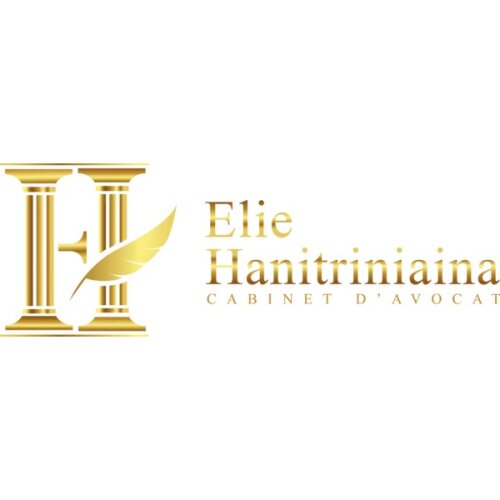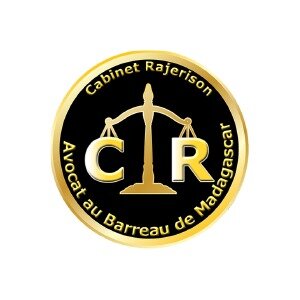Best Native People Lawyers in Antananarivo
Share your needs with us, get contacted by law firms.
Free. Takes 2 min.
List of the best lawyers in Antananarivo, Madagascar
About Native People Law in Antananarivo, Madagascar
Antananarivo, the capital city of Madagascar, is home to a diverse population with various ethnic groups, including indigenous communities. The native people of Madagascar, predominantly from the Merina group around Antananarivo, have distinct cultural, social, and legal characteristics. Native people law pertains to the rights and recognition of indigenous communities concerning land ownership, cultural preservation, and participation in societal frameworks. As Madagascar modernizes, there is a growing need to reconcile traditional practices with contemporary laws to protect the rights and traditions of native people while promoting social harmony.
Why You May Need a Lawyer
There are several common situations where individuals or groups from native communities might require legal assistance in Antananarivo:
- Land Rights: Disputes over territory ownership or land exploitation by external parties can necessitate legal intervention.
- Cultural Heritage Protection: Legal help may be needed to safeguard indigenous practices and prevent cultural appropriation.
- Environmental Concerns: Advocacy might be needed against unauthorized deforestation, mining, or resource extraction affecting native lands.
- Discrimination: Instances of bias or discrimination against native individuals in employment, education, or public services may require legal action.
- Government Relations: Negotiating with authorities on issues such as autonomy, local governance, or development grants.
Local Laws Overview
Madagascar's legal system recognizes the importance of protecting the rights of native people. Here are some key local laws relevant to indigenous communities in Antananarivo:
- Land Tenure Act: Safeguards land rights and possession, aimed at addressing historical injustices related to land dispossession.
- Cultural Preservation Legislation: Laws that ensure the protection of native cultural exhibits, languages, and traditional knowledge.
- Environmental Laws: Aim to protect native lands from ecological harm and unsustainable commercial activities.
- Anti-Discrimination Statutes: Prohibit biased treatment based on ethnic or native background.
Frequently Asked Questions
What defines a native person in Madagascar?
A native person in Madagascar refers to the indigenous ethnic groups that have historically inhabited the island, with the Merina being predominant in Antananarivo.
How are land rights enforced for native people?
Land rights are enforced through a combination of customary laws acknowledged by the local communities and national legal structures. Legal counsel can assist in navigating these systems.
What resources are available to protect cultural heritage?
Cultural preservation initiatives, often supported by government and NGOs, provide resources for protecting and maintaining traditional practices, languages, and artifacts.
Can native people access legal aid services?
Yes, there are specific legal aid services aimed at assisting native people with low-cost or free legal counsel in Antananarivo.
How can conflicts between modern laws and traditional practices be resolved?
Conflicts are often resolved through mediation and negotiation, incorporating respect for both traditional customs and current legal frameworks.
Are there any special protections against discrimination for native people?
Yes, there are specific anti-discrimination laws in place to protect native people from ethnic or cultural bias.
How are disputes over land use typically resolved?
Disputes are often resolved through negotiation or legal action, and expert legal services can guide throughout this process.
Is it possible for native groups to negotiate governmental policies?
Native communities can engage with government authorities to negotiate policies that affect them, with legal assistance often facilitating these discussions.
How can native communities seek compensation for environmental damage?
Legal recourse is available through environmental laws, and communities may be represented by lawyers in claims for settlements or reparations.
Are there advocacy groups for native people's rights in Antananarivo?
Yes, several advocacy groups work to protect and promote the rights of native people in Antananarivo.
Additional Resources
For those seeking legal advice or more information, the following organizations and governmental bodies can be helpful:
- Ministry of Culture and Communication: Provides information on cultural protection initiatives.
- National Environmental Office (ONE): Offers guidance on environmental protection laws relevant to native lands.
- Legal Aid Clinics: Provide accessible legal representation for indigenous individuals.
- Local NGOs: Various non-governmental organizations focus on the rights of native communities.
Next Steps
If you need legal assistance regarding native people issues in Antananarivo, consider the following steps:
- Identify the Issue: Clearly define the legal matter at hand, whether it's related to land rights, cultural preservation, or discrimination.
- Consult Legal Aid: Reach out to legal aid services or clinics that specialize in advocacy for native people.
- Gather Evidence: Collect all relevant documentation and evidence that pertains to your issue.
- Contact Organizations: Engage with organizations dedicated to native people's rights for guidance and support.
- Hire a Lawyer: Consider hiring a lawyer with experience in native people's law in Madagascar to ensure your rights are adequately protected.
Lawzana helps you find the best lawyers and law firms in Antananarivo through a curated and pre-screened list of qualified legal professionals. Our platform offers rankings and detailed profiles of attorneys and law firms, allowing you to compare based on practice areas, including Native People, experience, and client feedback.
Each profile includes a description of the firm's areas of practice, client reviews, team members and partners, year of establishment, spoken languages, office locations, contact information, social media presence, and any published articles or resources. Most firms on our platform speak English and are experienced in both local and international legal matters.
Get a quote from top-rated law firms in Antananarivo, Madagascar — quickly, securely, and without unnecessary hassle.
Disclaimer:
The information provided on this page is for general informational purposes only and does not constitute legal advice. While we strive to ensure the accuracy and relevance of the content, legal information may change over time, and interpretations of the law can vary. You should always consult with a qualified legal professional for advice specific to your situation.
We disclaim all liability for actions taken or not taken based on the content of this page. If you believe any information is incorrect or outdated, please contact us, and we will review and update it where appropriate.










